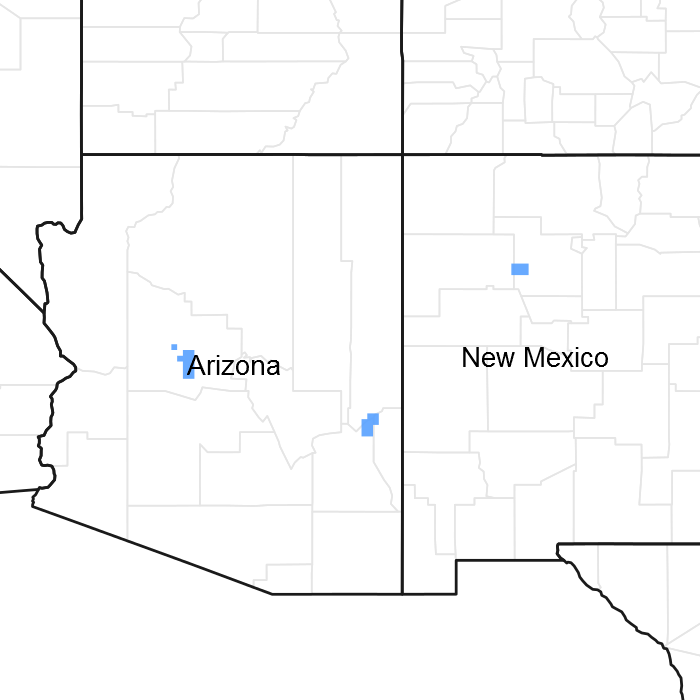
Natural Resources
Conservation Service
Ecological site F039XA135AZ
Basalt Hills 17-22" p.z. (PIPO, QUGA)
Last updated: 9/05/2019
Accessed: 01/16/2026
General information
Provisional. A provisional ecological site description has undergone quality control and quality assurance review. It contains a working state and transition model and enough information to identify the ecological site.

Figure 1. Mapped extent
Areas shown in blue indicate the maximum mapped extent of this ecological site. Other ecological sites likely occur within the highlighted areas. It is also possible for this ecological site to occur outside of highlighted areas if detailed soil survey has not been completed or recently updated.
MLRA notes
Major Land Resource Area (MLRA): 039X–Mogollon Transition North
AZ 39.1 Mogollon Plateau Coniferous Forests
Elevations range from 7000 to 12,500 feet and precipitation averages 20 to 35 inches per year. Vegetation includes ponderosa pine, Gambel oak, Arizona walnut, sycamore, Douglas fir, blue spruce, Arizona fescue, sheep fescue, mountain muhly, muttongrass, junegrass, pine dropseed, and dryland sedges. The soil temperature regime ranges from mesic to frigid and the soil moisture regime ranges from typic ustic to udic ustic. This unit occurs within the Colorado Plateau Physiographic Province and is characterized by a sequence of flat to gently dipping sedimentary rocks eroded into plateaus, valleys and deep canyons. Sedimentary rock classes dominate the plateau with volcanic fields occurring for the most part near its margin.
Associated sites
| F039XA132AZ |
Cinder Upland 17-22" p.z. (QUGA, PIPO) |
|---|---|
| F039XA133AZ |
Basalt Upland 17-22" p.z. (PIPO) |
| F039XA136AZ |
Cinder Hills 17-22" p.z. (PIPO, QUGA) |
Table 1. Dominant plant species
| Tree |
(1) Pinus ponderosa |
|---|---|
| Shrub |
(1) Robinia neomexicana |
| Herbaceous |
(1) Muhlenbergia montana |
Click on box and path labels to scroll to the respective text.